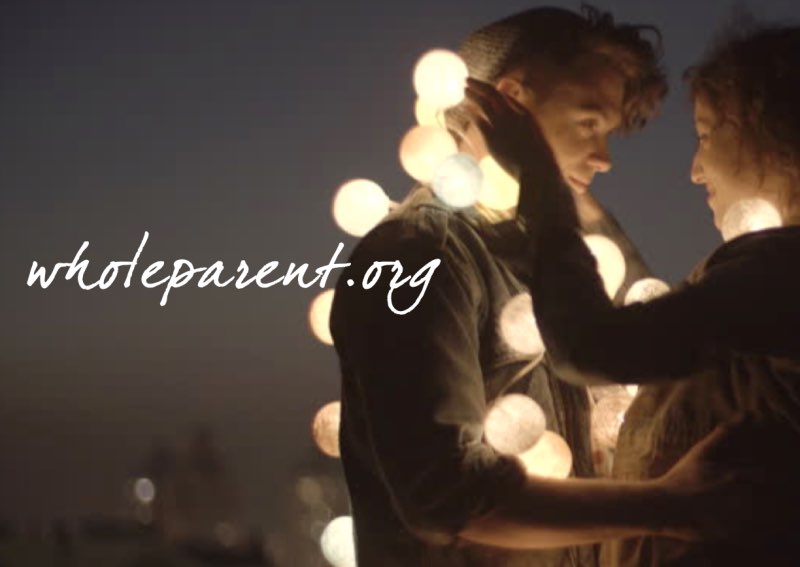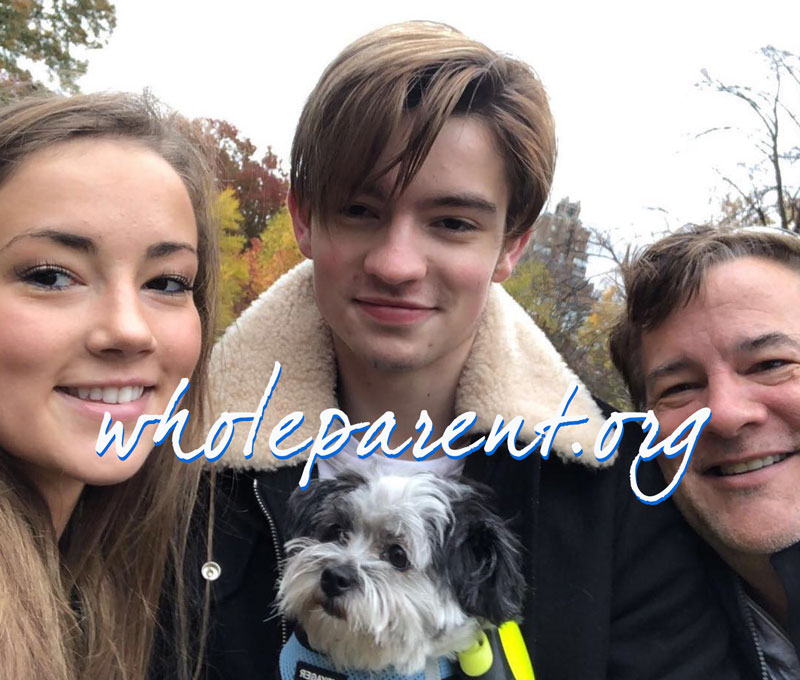
I have been divorced for nine years. And in those years, I have spent the last six of them working pretty hard at finding a willing partner and beginning the journey from the “hello” date to the first kiss and so on. I loved being married. I wanted my marriage to last. Even when things were rough between us, I was the one on the optimistic side of the counselor’s couch saying things like, “This is a great moment for us to reset our expectations about how we are going to pay for this lifestyle we are enjoying.” Well, that didn’t work out so well.
Since my divorce, I have tried to grow as an emotionally intelligent man. I’ve worked on my communication skills. I’ve worked on myself. And I’ve gone on a lot of dates. (I even wrote a book about it: Single Dad Seeks) And over the last three relationships, I’ve begun to find a balance between what I am willing to put out there of myself and my vulnerability. I have also learned a number of things I am not willing to accept in a partner.
I have approached dating as a process to identify, qualify, and ultimately partner with a single woman. The dating part is essential, but dating is not the goal. Sex is essential, but sex, also, is not the goal. Working to identify and explore a combination of these three factors, is how I am navigating my approach to finding my next long-term relationship.
Joy.
It is essential that my partner be able to express and experience joy at a high level. Enthusiasm is free. And I’ve got a lot of it. If my partner is a bit more demure, a bit more introverted, this may become a problem as it was a few girlfriends ago. She had the joy. But when my joy got going she would often withdraw. Some of that was introvert vs extrovert stuff, but some of it was her fear of flying. When you have joy and you match your joy with someone else, the sky begins to open up for both of you. It’s as if you each magnify each other’s energy and positive outlook.
And, on the flipside, joy can be overdone. I have had periods of my life where I was too damn positive. Too eager to make everything “okay” when things were definitely not okay. I still have to check-in with myself every time I say, “It’s okay.” Usually, I am responding to some disappointment or miss in my relationship. When I say, “It’s okay,” I’m glossing over my own pain, sometimes missing rather than acknowledging the pain. It’s important for me to stop when I say, “It’s okay,” and feel into the moment. Is it okay? Or does it suck and I’m just trying to make light of it? There’s a big difference.
I have to watch for this in partners as well. When they are too agreeable. When they offer very few opinions about where to eat or what movie to watch. They might be using the joy thing to be passive in the relationship. I need an actively joyful partner, not one who just goes along saying everything is great. I can feel when things are great. We can both feel it. And that mutual feeling of joy becomes exponential when you’re with someone you care deeply about.
Empathy.
In my early years, I did not get enough empathetic attention. Chaos reigned in my alcoholic home, and it was every man for himself. My sister, who was 10-years older, was my guardian during the gunfire, but she too was a child. We didn’t learn how to process the anger that was flowing through my father. We didn’t have any tools to dispell or discharge it later. So, guess what? It’s still up to me to allow my hurt, scared, and sad feelings come up again as an adult. At first, it was a bit frightening to me, when I would start crying with a girlfriend holding me. I wasn’t always certain what was triggering me or making me sad. But I allowed myself to be held, comforted and seen. An empathetic listener can feel with you, comfort you, and just be with you while you experience a memory or a current disappointment. And that’s all.
The next trick in being a good empathetic listener is to just be present and offer your loving attention. It is not a good idea to offer suggestions or advice at this time. Simply be with the person who is in pain. Hold a safe place for them to express what’s going on in their lives or in their recovered memories. And then just hold them. Hold the quiet space for them and allow their thoughts to guide what they need next to heal themselves. As partners, we are not therapists or coaches. We are listeners. We are lovers. And we are champions. But we have to keep our advice and our own hurts to ourselves when our partner is deep in their feelings. (See Brené Brown’s BRAVING)
Repair.
As we build on our relationship together we are going to hit places that feel uncomfortable. We are going to step on toes, awaken old patterns of distress, and give our partners an opportunity to experience pain. That’s part of what a holistic and loving relationship is about: we can contain both the good and the bad feelings and not be afraid of either one.
If we are the triggered partner, and we get angry and overwhelmed by some event or some behavior of our partner, is it our responsibility to take ownership of our own hyper-emotional state. Even if we can’t recognize it at the moment, we can acknowledge that when a HUGE rage comes flying out of us, it’s probably not about the dirty towels on the bathroom floor. The triggered partner must take charge of their own process at this point and ask for a time out. (Yes, the non-triggered partner can ask for a time out as well if they are beginning to feel overwhelmed.)
At this point, the triggered and emotionally charged partner needs to seek a safe quiet place to allow the feelings to reveal themselves at a deeper level. Inside we know it’s not about the towels on the floor. We have to stop and listen, explore, and feel what’s going on in our bodies. It is in this recovery phase that we can learn so much about ourselves and our past hurts. And from these moments we can see glimpses of where we want to go by releasing and becoming free of these unwieldy emotions.
As the last part of the process of recovery, we need to ask for a repair with our partner. This is the ultimate act of good faith and trust in a relationship. The repair is important for both partners. We need to rebuild the bridge that was torched during the moment of fury or sadness. We need to reestablish the goodwill and good intentions of both partners to stay close and to remain close even when these hard moments happen. In this way, we are hardening our love and build trust for our future.
Joy comes first. Without a bright outlook on life, we’re not going to get past a first date. Empathy comes during the first date. How does your partner react to your divorce or break-up story? How empathetic are they towards their former partners, and can they take ownership in some of what went wrong in their past relationships. And finally, the repair usually doesn’t come until some fracture has occurred. It’s very helpful if you have some Brené Brown BRAVING conversations before a blow-up, but it only takes one partner to hold the higher ground. If one partner remains clear and steady there is room for the other partner to have a moment.
With these three assets in a relationship, you have a better chance of building the long-term relationship you are craving. Good luck. Be brave.
Always Love,
John McElhenney – life coach austin texas
@wholeparent
See more from the Dating Again section of The Whole Parent
- Emotional Intelligence Essentials for Long-Term Relationship Success
- A Relationship Fable: Am I Addicted to Touch?
- 6 Steps of Authentic Online Dating After 40
- Sexual Fulfillment: I Don’t Know The Answer, Let’s Find Out Together
- Online Dating Advice from the Whole Parent: Get Over Yourself
Reference:
- Basics of Emotional Intelligence -Psychology Today


